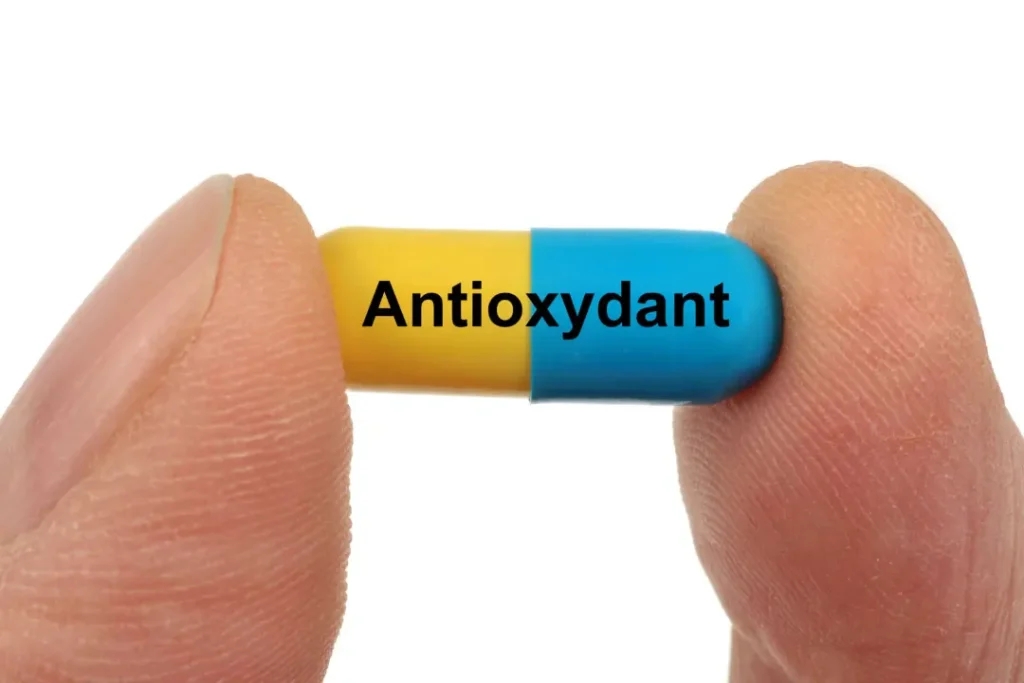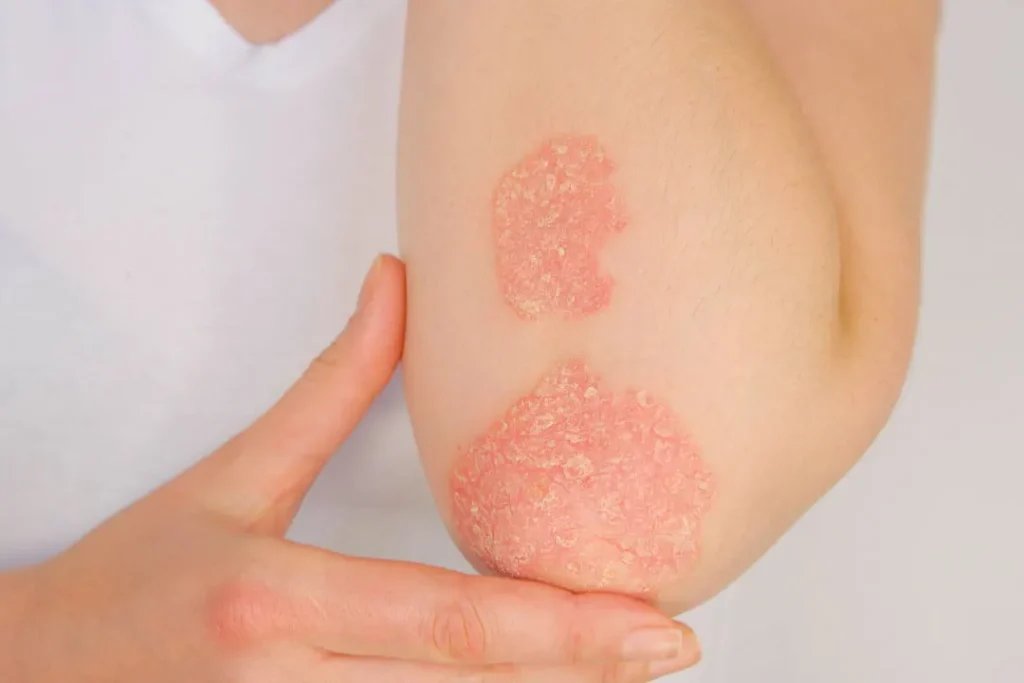The Orchidaceae family includes coral root, also known as Corallorhiza trifida, which is well known for its medicinal uses. Contrary to other plants, coral root is achlorophyllous (lacking chlorophyll), and it obtains nutrients through parasitizing fungus called mycorrhizal fungi that are connected to trees. The research of the plant’s composition, medicinal benefits, ideal doses, potential adverse effects, and interactions have all been sparked by this special quality.
You May Also Like:
The Best Mushroom Supplements for Memory: 5 Top Brands Reviewed
The Best Supplements for Memory and Brain Fog: 5 Top Brands Reviewed
Coral Root: Benefits, Dosage, Side Effects, Drug Interactions, and Other Important Information is an original (NootropicsPlanet) article.
The Nature of Coral Root
The Orchidaceae family member coral root represents a special class of plants called mycoheterotrophs. The name “heterotrophic” comes from the Greek words “mykes” (fungi), “heteros” (different), and “trophe” (nutrition), and it refers to the plant’s unusual method of acquiring nutrients. Coral root lacks chlorophyll and, in contrast to the majority of photosynthetic plants, depends on a parasitic connection with mycorrhizal fungus in order to survive.
Coral root, also known as Corallorhiza trifida in science, gets its name from its sprawling root system that resembles sea coral. By interacting with the fungus in the soil, this root system creates a symbiotic connection. The coral root provides organic carbon compounds to the fungus, while the fungi provide the plant with vital nutrients and water.
The coral root is an interesting plant since it is a perennial, meaning it survives for more than two years. Its life cycle is complex and includes phases of growth, reproduction, and dormancy. The coral root can survive exclusively on the nutrients obtained via its symbiotic association with fungus during the dormant period, even in the absence of photosynthesis.
The coral root is a fascinating subject for both botanical and medicinal studies due to its distinctive lifestyle, remarkable root structure, and beautiful above-ground blossoms.
Health Benefits of Coral Root
Coral root has a special composition that makes it beneficial for health in many ways. Its anti-inflammatory effects can help those with arthritis and other inflammatory illnesses, while its antioxidant capabilities support the health of the heart and skin. Coral root’s antibacterial characteristics help it fight many infections, while its neuroprotective capabilities might help treat neurological diseases.

The Chemistry of Coral Root
Coral root’s varied phytochemical makeup is what gives it its medicinal benefits. Terpenoids, flavonoids, and phenolic acids are some of the main substances found. Gallic acid and chlorogenic acid are two phenolic acids that are well recognized for their antioxidant effects. The plant’s anti-inflammatory, neuroprotective, and anticancer properties are aided by flavonoids including luteolin and apigenin. Betulinic acid is one of the terpenoids that has antiviral and antibacterial properties.

Physiological Mechanisms of Coral Root’s Action
The various bioactive compounds in coral root exert their effects through multiple physiological pathways Phenolic substances like gallic acid protect cells against oxidative stress, free radical scavenging, and cellular damage. The benefits of this activity are especially advantageous for preserving heart health, improving skin health, and lowering the chance of chronic illnesses like cancer.
Additionally, flavonoids like luteolin and apigenin prevent the synthesis of pro-inflammatory mediators, which reduces inflammation and helps treat inflammatory diseases. Terpenoids, such as betulinic acid, have the ability to kill microorganisms by rupturing their cell membranes. Coral root is useful in treating a variety of bacterial and fungal illnesses because of this.
Coral root also has neuroprotective qualities. Flavonoids can pass the blood-brain barrier and protect neurons by lowering oxidative stress, decreasing inflammation, and inflammation, and modulating neurotransmission.

Optimal Dosage of Coral Root
The ideal coral root dose varies depending on the patient’s age, general health, and the ailment being treated. Coral root is primarily used in traditional medicine, and little scientific study has been done on it, so it’s important to speak with a healthcare provider before beginning supplementation.
Side Effects and Toxicity of Coral Root
Coral root may result in adverse effects, just like any dietary supplement. These could consist of issues with the digestive system, allergic reactions, or interactions with other drugs. However, the adverse effect profile of coral root is not well described due to the absence of large human studies. When using this supplement, caution should be exercised, and any negative side effects should be immediately disclosed to a healthcare professional.

Potential Substance Interactions with Coral Root
Due to the paucity of available research, it is still entirely unknown how coral root could interact with other chemicals. Coral root has a diverse range of bioactive substances, thus there is a chance that it might interact with other dietary supplements or drugs, especially those that have effects or methods of action that are comparable.
Responsible Use of Coral Root
The secret to using coral root as a supplement is realizing that there isn’t much research on its safety and effectiveness, and that you should seek expert medical advice. Coral root should only be used under the guidance of a healthcare professional due to the lack of information on the best dose, possible adverse effects, and possible interactions.
Coral root is an attractive topic for more scientific research because of its distinctive phytochemical makeup and associated medicinal potential. Utilizing its health advantages requires an understanding of its chemical and physiological mechanisms of action. As we work toward fully realizing the potential of this amazing plant, it is crucial to approach its usage safely, taking into account the scientific community’s present knowledge gaps and making sure that any ingestion is under medical supervision.
Coral Root:
Conclusion
As coral root continues to be explored for new ways to incorporate the plant into holistic health care, you can reach out to your medical provider for more information on what does is right for your body and your needs. Coral root is not particularly dangerous, according to information allocated from conducted studies, but proper dosage is important when attempting to treat or alleviate symptoms of inflammation and improving neurocapabilities. Those who are looking for ways to boost their brain health and reduce inflammatory pain caused by ailments like arthritis can benefit from coral root supplements and other natural remedies that include anti-inflammatory flavonoids. Keep an eye out for more developments as to the effectiveness and benefits of coral root.
References:
- “Phytochemical and biological study of Corallorhiza trifida Chatelain: a plant used in traditional medicine in the Tshopo Province, Democratic Republic of the Congo.” Retrieved From: https://www.ncbi.nlm.nih.gov/pmc/articles/PMC6225592/
- “Phenolic acids: Natural versatile molecules with promising therapeutic applications.” Retrieved From: https://www.ncbi.nlm.nih.gov/pmc/articles/PMC6891674/
- “The Biological Activities and Therapeutic Applications of the Flavonoid Luteolin.” Retrieved From: https://www.ncbi.nlm.nih.gov/pmc/articles/PMC6355995/
- “Terpenoids as potential chemopreventive and therapeutic agents in liver cancer.” Retrieved From: https://www.ncbi.nlm.nih.gov/pmc/articles/PMC3168297/
- “Corallorhiza trifida, the northern coralroot.” Retrieved From: https://gobotany.nativeplanttrust.org/species/corallorhiza/trifida/
Important Note: The information contained in this article is for general informational purposes only, and should not be construed as health or medical advice, nor is it intended to diagnose, prevent, treat, or cure any disease or health condition. Before embarking on any diet, fitness regimen, or program of nutritional supplementation, it is advisable to consult your healthcare professional in order to determine its safety and probable efficacy in terms of your individual state of health.
Regarding Nutritional Supplements Or Other Non-Prescription Health Products: If any nutritional supplements or other non-prescription health products are mentioned in the foregoing article, any claims or statements made about them have not been evaluated by the U.S. Food and Drug Administration, and such nutritional supplements or other health products are not intended to diagnose, treat, cure, or prevent any disease.


